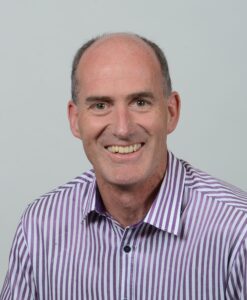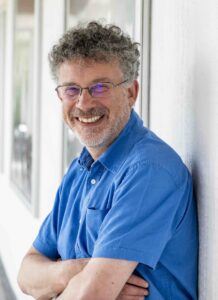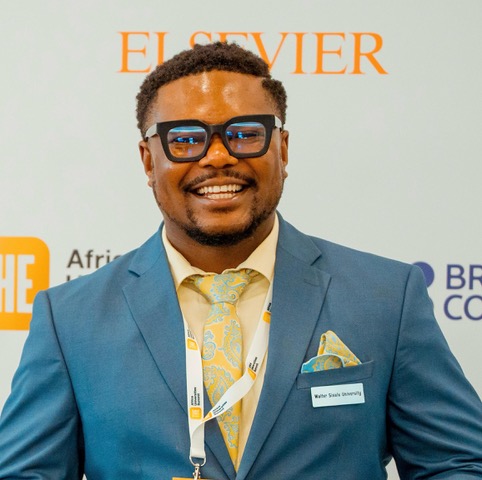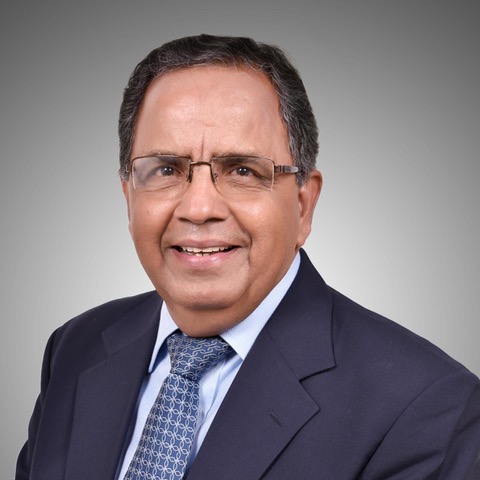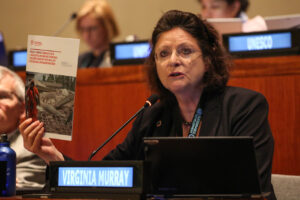President
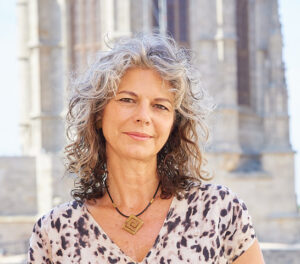
Mercè Crosas (nominated by USA, DDI and GO FAIR Foundation)
President 2023-2027
Mercè Crosas is a scientist and technologist at the Barcelona Supercomputing Center (BSC), and an expert in data science, data management, and open data and FAIR (Findable, Accessible, Interoperable, Reusable) data. From the beginning of 2023, she is the Director of Computational Social Sciences Program at the BSC, a new programme that aims to facilitate the use of data and computing in the social sciences and humanities, and advance new computational research in these domains.
Prior to this position, Crosas was Secretary of Open Government for the Government of Catalonia, where she was responsible for open data, transparency, and citizen participation from 2021 to 2022. Most of her professional career has been at Harvard University, as Chief Data Science and Technology Officer at the Institute for Quantitative Social Sciences (IQSS) and the University Research Data Management Officer. During her time at Harvard, she co-led a variety of projects to help improve how we do research openly, efficiently, and responsibly: an open-source platform for sharing research data now widely used around the world (dataverse.org); a project to analyse sensitive data while preserving privacy (opendp.org); a data commons for Harvard University; an application for analysing text as data (consilience); and a set of tools for computational reproducibility and data provenance, among others. She is co-author of the FAIR principles and the data citation principles, internationally endorsed. She has also developed data systems in biotech companies and conducted computational research and built scientific software for astrophysics at the Harvard-Smithsonian Center for Astrophysics.
Crosas holds a doctorate in Astrophysics from Rice University and a degree in Physics from the University of Barcelona, and was a pre-doctoral and post-doctoral fellow at Harvard-Smithsonian Center for Astrophysics.
Vice-Presidents
Richard Hartshorn (nominated by New Zealand)
Vice President 2023-2027; Executive Committee Member 2018-2023
Richard Hartshorn is a Professor of Chemistry in the School of Physical and Chemical Sciences of the University of Canterbury, Christchurch, New Zealand. He was Secretary General of the International Union of Pure and Applied Chemistry (IUPAC) from 2016 to 2023. He is a Fellow of the Royal Australian Chemical Institute and a Fellow of the New Zealand Institute of Chemistry.
Professor Hartshorn holds a BSc degree with first class honours from the University of Canterbury (1985) and a PhD from The Australian National University (1989). He completed postdoctoral research with Professor Jackie Barton at CalTech, and a three-year contract lectureship at the University of Melbourne before returning to the University of Canterbury in 1994.
As IUPAC Secretary General, Professor Hartshorn oversaw the IUPAC Secretariat and the scientific activities of the Union, encouraged interdisciplinary activities within IUPAC and encouraged a strategic move towards cheminformatics and other data related fields. He has been a member of the Executive Committee of CODATA since 2018-2020, and has been a member of the International Chemical Identifier (InChI) Trust Board since 2013.
Professor Hartshorn’s research group works in the area of applying the coordination chemistry of dinuclear and heterodinuclear systems to problems in biological chemistry. He has a long-standing interest in nomenclature and new ways of systematically naming and representing chemical compounds, leading to numerous IUPAC publications, some of which have been translated into multiple languages.
Professor Hartshorn has a record of excellence in teaching, including the UC Teaching Medal (2009), The Federation of Asian Chemical Societies award for Distinguished Contribution to Chemical Education (2023), and the NZIC sciPAD Denis Hogan Chemical Education Award (2019). He has been heavily involved in school and community education, through establishment of a science outreach program at UC, and has been a member of the Trust Board for the National Science-Technology Roadshow‘ since 2007 (Chair 2011-2020).
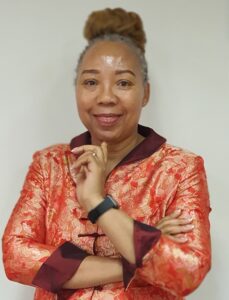 Daisy Selematsela (nominated by South Africa)
Daisy Selematsela (nominated by South Africa)
Vice President, 2023-2027; Executive Committee Member 2018-2023
Daisy Selematsela is the University Librarian at the University of the Witwatersrand. She previously served in the following capacities – as Executive Director: Library and Information Services and Acting Vice Principal: Research Postgraduate Studies, Innovation and Commercialisation at the University of South Africa and Executive Director: Knowledge Management Corporate at the National Research Foundation of South Africa (NRF). She is Professor of Practice of Information and Knowledge Management of the University of Johannesburg.
She has over 30 years’ experience in the Higher Education sector and within the National System of Innovation (NSI). She serves as mentor for both emerging researchers and students and an external examiner for undergraduate and postgraduate students in Library, Information Science and Knowledge Management.
Daisy has served CODATA since September 2006 at various levels through the activities of the South African National Committee for CODATA and the then-ICSU Regional Office for Africa activities including hosting workshops and website content for Task Group activities; championing the research data management processes and the Open Access Mandate within the National System of Innovation in South Africa; and promoting CODATA Task Group agendas at different forums in Sub-Saharan Africa. Her prior involvement with CODATA includes being co-chair the CODATA of PASTD Task Group; a member of ICSU’s ad hoc Committee on Information and Data; and a member of the CODATA Task Group on Data Sources for Sustainable Development in SADC.
A former Editorial Board member of the CODATA Data Science Journal (DSJ) and Editorial Board Member: Global Change Research Data Publishing and Repository.
She served on international and national boards and councils such as the National Library of South Africa; National Archives of South Africa; National Council of Library and Information Services; South African National Library & Information Consortium (SANLIC); Committee of Higher Education Libraries of South Africa (CHELSA) and was a member of the Board of Directors of international bodies such as the Confederation of Open Access Repositories (COAR), ORCID, Research4Life, GetFTR and Networked Digital Library of Theses and Dissertations (NDLTD).
Daisy has co-ordinated workshops, chaired conference sessions and made numerous local and international invited keynote presentations on areas of her research interest, in areas of Information Literacy; Open Scholarship, Open Science and Open Data; Digitisation and Preservation; Repositories; Records and Document Management; Information and Knowledge Management; and Leadership, Transformation and Change Management. She has also published articles in a number of popular and accredited journals; a book chapter; and several contributions to UNESCO and WHO reports. An editorial board member of the Preservation, Digital Technology & Culture (PDTC) USA; Annals of Library and Information Studies (ALIS) (India), Digital Journal of Global Change Data Repository (China), Journal of Information Practice and Management (Nigeria) and a reviewer of several programs.
She holds a PhD in Information Science from the University of Johannesburg (South Africa) ; a Fellow of the Higher Education Resource Service for Women in Higher Education (HERS) South Africa and Bryn Mawr College in Philadelphia, USA. Awarded the Knowledge Management Award in 2016 by the World Education Congress.
Secretary General
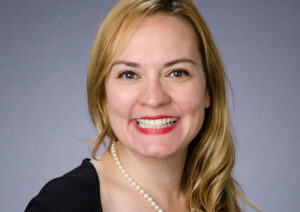 Christine Kirkpatrick (nominated by USA)
Christine Kirkpatrick (nominated by USA)
Secretary General 2021-2029 (re-elected 2025)
Christine Kirkpatrick’s home institution is at the San Diego Supercomputer Center, UC San Diego where she leads the Research Data Services division that includes infrastructure (cloud, networking, storage), data center/colocation facility, and a data initiatives group. She has considerable experience leading research infrastructure projects (at scale) and supportive data services including a leadership role on the Schmidt Futures Foundation and NSF-funded Open Storage Network and as head of the Data Core for the National Institutes of Health-funded Metabolomics Workbench, a national data repository for metabolomics studies. Kirkpatrick has held numerous roles in the Data Together institutions, including as a member of the Technical Advisory Board for the Research Data Alliance (2018-2021); she co-chairs the FAIR Digital Object Forum, and serves as an ex officio member on the National Academies’ US National Committee for CODATA. Kirkpatrick was the founding Executive Director of the US National Data Service. In addition to being PI of the EarthCube Office (ECO), Kirkpatrick founded the US GO FAIR Office, is PI of the West Big Data Innovation Hub, and co-PI on a new NSF Accelnet award: ‘Designing a Water, Data, and Systems Science Network of Networks to Catalyze Transboundary Groundwater Resiliency Research’. She serves on the advisory boards for the European Open Science Cloud-Nordic (EOSC-Nordic) project and the Helmholtz Federated IT Services (HIFIS). Kirkpatrick is a member of the Stakeholder Alignment Collaborative, a research group whose focus includes organisational models that support community-driven (data) consortia. Kirkpatrick’s personal research is in Computer Science where she focuses on the relationship of FAIR data and machine learning processing.
Treasurer
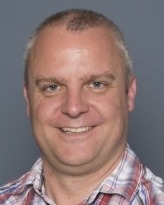 Steven McEachern (nominated by Australia in 2021 and by DDI in 2025)
Steven McEachern (nominated by Australia in 2021 and by DDI in 2025)
Treasurer 2021-2029 (re-elected 2025)
Steve McEachern commenced as Director of the UK Data Service at the University of Essex in August 2024, following 15 years as Director of the Australian Data Archive (ADA), at the Australian National University (ANU). As UKDS Director he is responsible for the strategic development and direction of the Service and leading the partnership of 5 organisations delivering the Service from 2024-2030.
Steve has high level of expertise in data archiving and survey data collection, and has been actively involved in the development and application of new methods, and technological advancements, in these areas over the past 25 years. This included leadership of the Social Surveys work package in the recently completed WorldFAIR project. He also has 25 years of experience in the teaching of research methods in the social sciences.
Steve is currently the treasurer of CODATA, the International Science Council’s Committee on Data; vice-chair of the DDI (Data Documentation Initiative) Alliance Executive Committee; and co-chair of the Research Data Alliance Social Science Interest Group. He was a member of the Australian Academy of Science’s National Committee on Data in Science from 2021-2024.
Past-President
Barend Mons (Netherlands)
Past President 2023-2027; President 2018-2023
Barend Mons is a molecular biologist by training (PhD, Leiden University 1986). He spent over 15 years in malaria research in close collaboration with endemic countries. After that he gained experience in computer-assisted knowledge discovery, which is still his research focus. He spent time with the European Commission as a Seconded National Expert with the INCO-DC pogramme (1993-1996) and with the Netherlands Organisation for Scientific Research (NWO 1966-1999). Barend also co-founded several spin off companies. In 2000 he founded the Biosemantics group in Rotterdam and later also in Leiden. Currently, Barend is Professor in Biosemantics at the Human Genetics department of Leiden University Medical Center. He was also the first Head of Node for ELIXIR-NL at the Dutch Techcentre for Life Sciences (until 2015), is Integrator Life Sciences at the Netherlands eScience Center, and board member of the Leiden Centre of Data Science. In 2014, Barend initiated the FAIR data initiative and in 2015, he was appointed Chair of the European Commission’s High Level Expert Group for the European Open Science Cloud initiative, from which he retired at the end of 2016. Barend is an ambassador of GO FAIR and co-founder of the GO FAIR initiative, an initiative to kick start developments towards the Internet of FAIR data and services, which will also contribute to the implementation of components of the European Open Science Cloud.
Executive Committee Members 2025-2027
Jeremy Frey (nominated by United Kingdom)
Executive Committee Member 2025-2027
Jeremy is a physical and digital chemist, obtaining BA and DPhil in Chemistry from University of Oxford supervised by Brian Howard, followed by a NATO/SERC fellowship at the Lawrence Berkeley Laboratory, University of California, with Yuan T. Lee. Jeremy was appointed to a lectureship at the University of Southampton in 1984 where he is now Professor of Physical Chemistry in the School of Chemistry and Chemical Engineering. Until last year he was head of the Computational Systems Chemistry Section.
Jeremy is an enthusiastic supporter of interdisciplinary research, combining theory, computation and experiment within chemistry, which led to his involvement in the UK e-Science and Digital Economy programmes and then onto being the PI of the UK AI for Scientific Discovery Network (‘www.ai4science.network‘).
He is currently a co-Investigator on the Physical Science Data Infrastructure project (‘www.psdi.ac.uk‘) and AIchemy AI Hub (‘https://aichemy.ac.uk‘). He recently started a project to deliver a water-window laser driven x-ray microscope for biological samples with the Rosalind Franklin Institute (RFI). He is also a co-I on the Digital Innovation and Circular Economy Network (DICE, ‘https://dice-networkplus.org/‘).
Jeremy has been the International Union of Pure and Applied Chemistry (IUPAC) representative at the CODATA GA for many years and has been a member, and is currently chair, of the CODATA DRUM TG (Digital Representation of Units of Measure, ‘https://codata.org/initiatives/task-groups/drum/‘).
Jeremy is the incoming president of the IUPAC Div 1 (Physical and Biophysical Chemistry), a member of the IUPAC Committee of Publications and Chemical Data Standards (CPCDS) and Chair of the IUPAC Green Book 5th Edition project, which covers Units, Symbols and Terminology for Physical Chemistry.
In the UK, Jeremy is a member of the UK International Research Data Initiatives Forum and contributes to many of the UKRI data and AI initiatives. Jeremy is a Trustee of the Royal Society of Chemistry (‘https://www.rsc.org‘) and member of the RSC Faraday Community Council (Physical Chemistry), chair of the RSC-IUPAC committee and member and former secretary of the RSC Chemical Information and Computer Applications interest group (‘https://www.rsccicag.org‘).
LinkedIn ‘https://www.linkedin.com/in/jeremygfrey/
University of Southampton ‘https://www.southampton.ac.uk/people/5wxwdv/professor-jeremy-frey
Google Scholar: ‘https://scholar.google.com/citations?user=cIXkTUoAAAAJ&hl=en
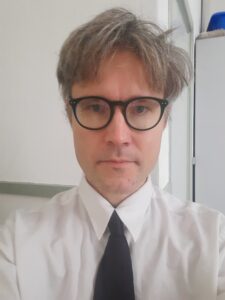 Leo Lahti (nominated by Finland)
Leo Lahti (nominated by Finland)
Executive Committee Member 2023-2027 (re-elected 2025)
Leo Lahti is professor in Data Science at the Department of Computing, University of Turku, Finland, where his team focuses on computational analysis of complex natural and social systems ranging from history of print press to human microbiome in large-scale population studies.
Lahti obtained a doctoral degree (DSc) in probabilistic machine learning at the Aalto University in Finland (2010), developing data integration methods in life sciences. Lahti spent nearly a decade of his research career abroad, including internships and visiting scholarships at Dakshinayan (IN), CERN (CH), Croatian Meteorological Institute (CH), European Bioinformatics Institute EBI/Hinxton (UK), Wageningen University (NL), and VIB/KU Leuven (BE). He coordinates international developer networks in open data science and computational humanities methods, and organises international training events on a regular basis.
He has been CODATA national delegate for Finland since 2022, and a member of the Data Ethics Task Group. He is also vice chair for the national open science and research coordination in Finland, board member in Open Knowledge Finland, member of the global R/Bioconductor Community Advisory Board and a certified Carpentries Instructor. Recently, he led a working group that created a national policy on open access to research methods in Finland and participated in the Ministry of Justice working group to renew the law on public information with a particular emphasis on e.g. challenges created by data and digitalisation of society. As a member of the CODATA Executive Committee, Prof. Lahti aims to promote the emphasis on data interpretation and open access to methods and infrastructures surrounding data, and the exchange of best practices across disciplines, institutional, and geographical boundaries.
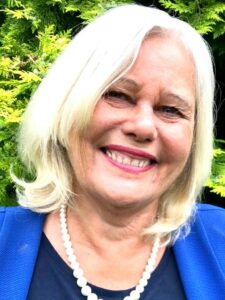 Pam Maras (nominated by IUPsyS)
Pam Maras (nominated by IUPsyS)
Executive Committee Member 2023-2027 (re-elected 2025)
Pam Maras was elected as the first female President of the International Union of Psychological Science (IUPsyS) in 2016. She now serves as past president on the IUPsyS Executive Committee. She is a Chartered Psychologist and a Fellow, Past President, and Past Honorary General Secretary of the British Psychological Society and a Chartered Scientist (CSci). Pam is Emerita Professor of Psychology at the University of Greenwich, London, UK, where she held senior University roles including chair of the independent committee for institutional compliance with ethical requirements including data stewardship.
Pam has international research collaborations in Africa, Australasia, China, Europe (including France, Nederland, Spain, and Italy), the Nordic countries, North and Latin America, and South-East Asia. Her publications included in the UK national assessment of research excellence in 2021 were independently rated as internationally excellent or outstanding.
Pam has an interest in applying science to social situations. She takes a principled approach to the need to ensure that: all regions of the world are able to engage in the ‘open science movement’ as both contributors as well as recipients, and that social and behavioural sciences are equal partners in international science. Pam is actively committed to Gender Equality in Science and represents IUPsyS on the Standing Committee on Gender Equality in Science (SCGES).
As a psychologist, Pam’s contribution to CODATA includes representing and integrating psychological science into the adoption of principles and policy arising out of CODATA and partners, and at a disciplinary level on human behaviour; both of scientists and on applications of scientific discovery including in areas of interdisciplinary relevance. Pam’s expertise is relevant to the impact of data, and the ethical development and implementation of policy. This can only be effectively achieved with integrity if common processes are adopted; this requires a shared understanding and commitment to act and cooperate – behavioural scientists such as psychologists are essential to this endeavour.
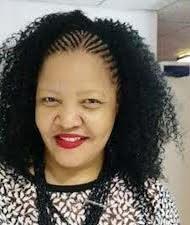 Audrey Masizana (nominated by Botswana)
Audrey Masizana (nominated by Botswana)
Executive Committee Member 2021-2027 (re-elected 2023, 2025)
Dr Audrey Masizana is a Senior Lecturer and former Head of Department of Computer Science at the University of Botswana. She holds a PhD in Computer Science from University of Manchester, UK (2004). She is also Fellow of the Botswana Academy of Sciences (FBAS) since 2021 and the Global Health International Scholar of the University of Pennsylvania, USA (2023-2026).
As a member of the Botswana CODATA National Committee, she is a strong advocate and passionate about the adoption of Open Data and Open Science policies and instruments, locally and across the continent. Currently she is the Chair of the development of the Botswana Open Data Policy established by the Botswana Presidential Task Force (Smart Bots) in March 2023, the outcome of which could provide the leadership and adoption in the African SADC region. In 2021 she was elected to serve for 2 years into the Executive Committee of the CODATA for International Science Council and is now serving a second term.
She has over the years gained enormous experience in spearheading academic networking platforms including chairing conferences such as Information Technology for Development (IASTED Africa 2014, 2016), the International Conference in Cyber-Security and Information Systems conference series referenced in ICICIS 2016 and here and the International Data Week (IDW) 2018 hosted by the University of Botswana. She has served as a member of the African Technical Advisory Committee which formed part of the first committee that established the African Open Science Platform in 2017. She is also one of the innovators of the VizAfrica Network and chaired the second VizAfrica Conference in 2019, delivered in collaboration with CODATA. She continues to serve on the organising committees of the subsequent IDW and Viz Africa conferences.
As Head of Department, she made contributions to the promotion of science and technology by providing leadership in the establishment of fostered local and regional collaborative projects around High Performance Computing (HPC) and Data Science research, eHealth Research, Intelligent Systems research and Open Data. She has served at national bodies such as the National Cyber Security Strategy Development Committee (2016) and its new Implementation Committee (2021).
Audrey is passionate about interdisciplinary postgraduate research around the Scientific Application of Data for Intelligent Decision Making for which she also conducts external examining for other universities. She is a well-seasoned researcher with 50+ publications. Audrey currently serves as a Project Investigator of the Kamogano project, in collaboration with the Children’s Hospital of Philadelphia (CHOP) that aims to evaluate the flow of clinical information from and to the front-line clinicians within Botswana Health Information Systems. She is also a PI of a project named MLCOVID19 conducted by the University of Botswana which aims to apply machine learning techniques to predict COVID-19 progression amongst patients in Botswana through risk analysis on survival and mortality rates using data collected during the pandemic.
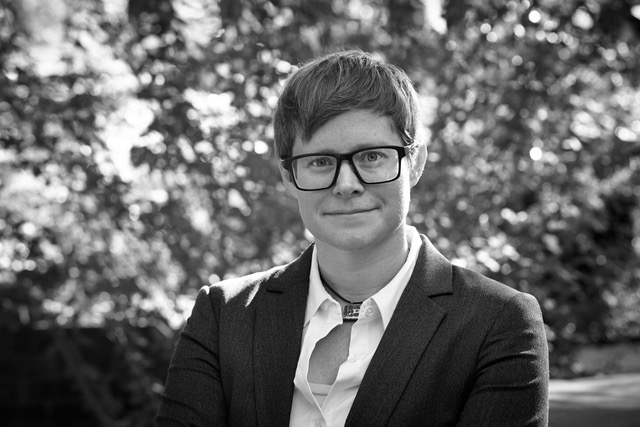 Lauren Maxwell (Germany, nominated by the Research Data Alliance)
Lauren Maxwell (Germany, nominated by the Research Data Alliance)
Executive Committee Member 2025-2027
Lauren Maxwell, PhD, MPH, is an epidemiologist and mixed methods researcher dedicated to advancing the FAIR and equitable reuse of data and samples to strengthen the global research response to emerging infectious diseases. She leads the FAIR and Equitable Data and Sample Reuse Research Group at Universitätsklinikum Heidelberg, Germany and serves as a Senior Researcher with the Ecraid Foundation in the Netherlands.
Her work bridges public health, data science, policy, and community-based participatory research to connect humans to data and make health data a true global public good. She works to address the interoperability, quality, metadata, provenance metadata, and data governance challenges needed to build trust in AI applications in biomedical research. She leads or supports data-related work packages for the European Union-funded pandemic preparedness consortia ECRAID-Base, CoMeCT, CONTAGIO, and BE-READY-NOW.
Within the global data community, Lauren co-chairs the CODATA–RDA Health Data Commons Working Group and the RDA Technical Repository Service Providers Group, leads working groups related to standards implementation and cohort data reuse with the European Cohort Coordination Board, and serves on the Human Cell Atlas Ethics Review Committee and the EOSC Health Data Interoperability Task Force.
Her work with CODATA and RDA focuses on building the metadata and policy intelligence needed to understand how FAIR implementation choices and ELSI concerns drive or constrain data reuse and evidence production across health and other scientific domains. Lauren is a co-author of the CODATA Cross-Domain Interoperability Framework (CDIF) and is focused on how we can better connect and reuse data across domains to address the complex global challenges affecting human health, including outbreak detection, disaster response, climate change, One Health, ocean health, biodiversity, and beyond.
Yasuyuki Minamiyama (nominated by Japan)
Executive Committee Member 2025-2027
Yasuyuki Minamiyama is an associate professor in the Center for Social Research and Data Archives at the Institute of Social Science, the University of Tokyo, Japan. His expertise is in interdisciplinary data curation methodologies, and he has conducted research on the sharing and reuse of research data. From 2019 to 2025, he participated in the Japanese national project for developing a national research data infrastructure and led research on the functional development of research data curation across various fields. Currently, he is practically exploring how to facilitate the re-use of research data in different fields through a survey of metadata descriptions in representative data archives.
He has worked with researchers working with data in the humanities and social sciences to develop guidelines for the proper handling of data in the JSPS-led ‘Programme for Constructing Data Infrastructure for the Humanities and Social Sciences’ in 2021. He has also been involved in writing policy recommendations on open science by the Science Council of Japan in 2022. Since 2024, as chair of the RDUF’s planning committee, he has been working with data curators from various fields – earth sciences, life sciences, materials science, humanities and social sciences – to form a cross-disciplinary community.
He also has deep expertise as a data librarian, having previously worked at the National Institute of Polar Research, where he was involved in metadata creation in the upper atmosphere physics field. He also supports community activities as a key member of Japan’s open science communities. He has experience leading large-scale surveys on research data management and data repositories in the Japan Consortium for Open Access Repository (JPCOAR), a major community dealing with data repositories. Also, he actively promotes awareness and advocacy activities related to data repository accreditation in the Research Data Utilization Forum (RDUF), a potential counterpart of the RDA in Japan.
He holds a Ph.D. in information science with a focus on knowledge engineering from The Graduate University for Advanced Studies, SOKENDAI, Kanagawa, Japan.
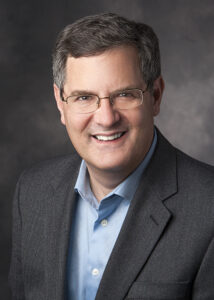 Mark A Musen (nominated by USA)
Mark A Musen (nominated by USA)
Executive Committee Member 2025-2027
Mark Musen is the Stanford Medicine Professor of Biomedical Informatics Research at Stanford University, with appointments in the Department of Medicine and the Department of Biomedical Data Science. He received an M.D. degree from Brown University and a Ph.D. degree from Stanford.
Musen conducts research related to open science, intelligent systems, computational ontologies, and biomedical decision support. His group developed Protégé, the world’s most widely used technology for building and managing terminologies and ontologies. Protégé has provided the infrastructure for many important scientific ontologies, including the U.S. National Cancer Institute Thesaurus and the World Health Organization’s International Classification of Diseases (ICD). From 2008 to 2016, Musen chaired the Health Informatics and Modeling Topic Advisory Group for the WHO ICD Revision Steering Group.
Musen’s laboratory developed BioPortal, the world’s most comprehensive open repository of publicly available scientific ontologies and controlled terminologies. BioPortal has led to a general architecture known as OntoPortal, which has attracted an international community of investigators who comprise the OntoPortal Alliance. The OntoPortal Alliance brings together users of the OntoPortal technology who manage open ontology repositories for a wide range of scholarly disciplines, ranging from agronomy to materials science.
Musen also directs the Center for Expanded Data Annotation and Retrieval (CEDAR). CEDAR develops semantic technology to ease the authoring and management of discipline-specific experimental metadata. The CEDAR Workbench is a suite of software tools that allows scholarly communities to author and disseminate standards for descriptive metadata and to create new metadata instances that are adherent to those standards, helping to ensure that data are FAIR.
Musen has served on the U.S. National Committee for CODATA since 2020. He was the recipient of the Donald A. B. Lindberg Award for Innovation in Informatics from the American Medical Informatics Association in 2006. He is a Distinguished Fellow of the American College of Medical Informatics, a fellow of the International Academy of Health Sciences Informatics, and an elected member of the U.S. National Academy of Medicine. He is the recipient of two honorary doctoral degrees and a lifetime achievement award from the Knowledge Graph Conference.
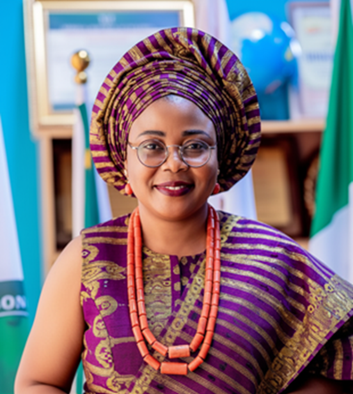 Francisca Oladipo (nominated by GFF)
Francisca Oladipo (nominated by GFF)
Executive Committee Member 2025-2027
Francisca is Vice-Chancellor and Chief Executive Officer of Thomas Adewumi University, Kwara State, Nigeria, where she has led transformational growth since 2022. She is also a Professor of Computer Science at Federal University Lokoja, where she became the first female Professor of Computer Science in the institution’s history. As Vice-President of the VODAN Africa, Francisca has been at the forefront of implementing FAIR data principles across Africa. Under her leadership, VODAN-Africa deployed FAIR Data Points across 88 health facilities in eight African countries during the COVID-19 pandemic, demonstrating how data interoperability can strengthen health systems and save lives.
Francisca’s expertise spans artificial intelligence, machine learning, data analytics, and FAIR data stewardship. She has secured over several international grants and has published extensively on data science applications in healthcare, education, and social development. She serves as Secretary-General of the Consortium of Universities in Kwara State (KU8+), fostering collaborative research and resource sharing among Nigerian institutions. Her commitment to advancing Africa’s participation in global data initiatives while ensuring data sovereignty and ethical stewardship has earned her numerous accolades. She is a Fellow of the Pan-African Scientific Research Council (PASRC), the Nigerian Computer Society, and the British Computer Society among others.
Francisca holds a PhD in Computer Science from the Nnamdi Azikiwe University, Nigeria and completed postdoctoral research at Massachusetts Institute of Technology (MIT). Her research has been supported by prestigious organisations including the Carnegie Corporation of New York, GO FAIR Foundation, Philips Foundation, and the Netherlands Organisation for Scientific Research (NWO). Beyond her academic achievements, Professor Oladipo was honored with the chieftaincy title of Yeye Atunluse (Mother of Restoration and Development) of Oko-Irese Kingdom, Nigeria, in recognition of her contributions to community development and education.
As a member of the CODATA Executive Committee, Professor Oladipo brings invaluable perspective from the Global South, advocating for inclusive approaches to data governance that respect cultural contexts while maintaining global standards. Her vision includes strengthening partnerships between African institutions and global data networks, promoting capacity building in emerging economies, and ensuring that international data policies reflect diverse perspectives. She is particularly focused on bridging the digital divide and advancing data literacy across underrepresented regions.
Professor Oladipo’s leadership exemplifies the intersection of technical excellence, policy advocacy, and transformational impact, championing data science as a tool for addressing humanity’s greatest challenges while ensuring equitable participation in the global data ecosystem.
 Rodrigo Roa (nominated by Chile)
Rodrigo Roa (nominated by Chile)
Executive Committee Member 2025-2027
Rodrigo Roa López de Heredia is a Chilean lawyer and expert in data governance, technology law, and science policy, with broad experience in developing institutional frameworks that connect law, ethics, and digital transformation. He currently serves as Executive Director of the Data Observatory, a public–private–academic foundation that promotes the use of large and complex datasets for science, innovation and public value.
Roa’s work focuses on the governance of data ecosystems, the ethical and regulatory dimensions of artificial intelligence, and the implementation of FAIR data principles in national and regional contexts. He has led the design of legal and policy instruments that foster open science, interoperability, and the responsible use of data in Latin America.
Over the past decade, he has advised ministries, research agencies, and academic institutions on matters of institutional governance, public–private collaboration, and science and technology regulation. His leadership has contributed to initiatives that strengthen transparency, access to information, and digital innovation in the region.
Roa is recognised for his ability to translate complex ethical and regulatory challenges into actionable frameworks, encouraging collaboration between government, academia, and industry. His current interests include the integration of legal and technical approaches to ensure that AI systems are developed on transparent, inclusive, and socially responsible data foundations, advancing both regional capacity and global cooperation in data-driven science.
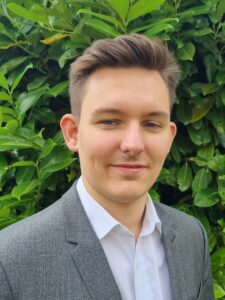 Cyrus Walther (nominated by IUPAP)
Cyrus Walther (nominated by IUPAP)
Executive Committee Member 2023-2027 (re-elected 2025)
Cyrus Pan Walther serves in his second term as the President of the International Association of Physics Students, representing the global community of Physics students and their interests. In his position on the Executive Committee of CODATA, he focuses on Early Career Researchers and sustainability. Creating value for young scientists, fostering international connections, and amplifying the voice of science are his core focal points. Combined with his position as the Vice-Chair for Physics and Industry in the International Union of Pure and Applied Physics (IUPAP), he advocates for identifying and obtaining valuable resources for young researchers worldwide. Professionally, Cyrus completes his studies at TU Dortmund University in the Astroparticle Physics Group under Prof. Wolfgang Rhode, where he is researching machine learning algorithms and artificial intelligence approaches for the use of uncertainty estimations in high-energy gamma astronomy.
Ex Officio and Co-Opted Executive Committee Members 2025-2027
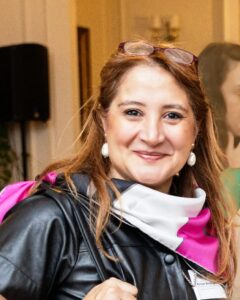 Burcak Basbug
Burcak Basbug
Ex Officio member of the Executive Committee 2025-2027 as co-chair of the Data Policy in Times of Crisis initiative and of the International Data Policy Committee.
Burçak graduated in 1st rank from Ankara Atatürk High School in 1994. She persuaded and completed her BSc, MSc and PhD studies, respectively, from the Middle East Technical University (METU) Statistics Department in 1999, the University of Warwick-UK in 2002 and London School of Economics and Political Science in 2007; all with a focus of earthquakes in Türkiye.
Currently, she is a Full-Professor of Statistics and Disaster Science at METU in Ankara. She was the Course Director of MSc Disaster Management and Resilience at Coventry University in the United Kingdom between August 2019 and August 2020.
Prior to that she was the Director of the METU Disaster Management Centre between 2008 and 2018.
Burçak has numerous memberships and engagements in research and disaster-related organisations:
- member of the Chatham House, London;
- editorial board member of the ODI journal ‘Disasters’, London;
- a reviewer of many academic journals in the field of disaster, emergency and crises management;
- member of the Earthquake Engineering Research Institute (EERI), Oakland-CA;
- Japan International Cooperation Agency (JICA) Alumni in Urban Disaster Risk Reduction having been trained in Kobe-Japan;
- Higher-Consultancy Board Member of Ankara City Council.
Since 2019, Burçak serves as an Academic Partnership Director of the ICPEM (Institute of Civil Protection and Emergency Management) based in London. She received the title Senior Fellow of the Higher Education Academy (SFHEA) in the UK in 2019. She worked as a visiting worker between 2022 and 2023 at the UK Health and Security Agency (UKHSA).
Burçak has 27 years of experience in disaster risk reduction, disaster risk management, policy development, education, statistics, catastrophe insurance working with national and international stakeholders such as AFAD (Disaster and Emergency Management Authority-Türkiye), the World Bank, UNDRR, UNICEF, UNESCO, JICA. She has been publishing peer-review journal papers, book chapters, acting as the PI of national and international projects, supervising undergraduate and graduate students in fields of disaster risk management, statistics and related subjects. She has been teaching excessively in survey sampling, applied statistics, experimental design, probability, disaster risk management and disaster risk reduction modules in Turkiye and in the UK.
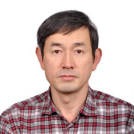 Lianglin HU
Lianglin HU
Co-opted member of the Executive Committee, 2025-2027, with a mission to build a strong collaboration with CNIC and CODATA China.
Professor Hu Lianglin currently serves as the Deputy Director of the Big Data Department at the Computer Network Information Center, Chinese Academy of Sciences (CAS). In this capacity, he oversees the National Basic Science Data Center (NBSDC) and also holds the position of Secretary General for CODATA China. With over two decades of experience in scientific data governance, Professor Hu leads NBSDC in managing an extensive collection exceeding three petabytes of multidisciplinary data across various fields including physics, chemistry, materials science, zoology, botany, and information science. In response to AI’s transformative impact on data sharing practices, Professor Hu has been a pioneer in developing trusted data space service models. This initiative culminated in NBSDC’s Basic Science Data Space being selected as a national pilot project by China’s National Data Administration for 2025. As Secretary General of CODATA China since 2021, he has successfully organised five China Science Data Conferences with total attendance surpassing 3,000 participants and all 20 national science data centers throughout China. Additionally, Professor Hu represents China as an expert delegate to ISO/TC 184/SC 4/WG 13 on Industrial Data Quality. His team’s work on GB/T 42813-2023 concerning Data Paper Publication Metadata was recommended for ISO adoption during the upcoming ISO/TC 46 meeting scheduled for 2025. He has developed a comprehensive national data quality maturity model and contributed to over 40 scientific data standards—including nearly 20 national standards—while leading CAS’s initiatives related to its data management policy established in 2019.
Ntsundeni (Louis) Mapatagane
Ex Officio member of the Executive Committee as co-lead of the CODATA Connect Early Career Initiative.
Ntsundeni (Louis) Mapatagane is a member of the South African National Committee on Data and a CODATA Connect co-chair. Louis is a respected higher education strategist whose work sits at the intersection of institutional intelligence, sustainability, and digital transformation. With more than a decade of senior leadership experience, Louis has established himself as a thought leader in how universities use data, planning, and innovation to strengthen performance and create meaningful societal impact. Louis specialises in institutional planning, research analytics, governance reform, and sustainability initiatives that support student success and long-term organisational resilience. He holds a master’s degree in environmental sciences, where he focused on organisational energy efficiency and climate-conscious operations. These interests continue to anchor his academic and professional work as he progresses toward an MBA in digital transformation and innovation, alongside PhD research aimed at strengthening energy efficiency, reducing greenhouse gas emissions, and guiding the development of sustainable infrastructure in higher education environments. His research reflects a broader vision: a higher education sector that is data-informed, future-ready, and environmentally responsible. In 2025, Louis contributed to one of the most globally influential gender and economic empowerment initiatives of the year: the G20 EMPOWER Best Practices Playbook. He played a key role in shaping the data strategy, analysis, and evidence framework behind the publication, which was formally recognised in the G20 South African Leaders’ Declaration. This contribution positioned South Africa as a leading voice in international gender equity dialogues and showcased Louis’s ability to translate complex institutional data into globally relevant insights. He also contributes to national entrepreneurship development as a member of the Community of Practice on EDHE (Entrepreneurship Development in Higher Education), advocating for innovation-driven thinking and entrepreneurial ecosystems within universities. Louis’s career reflects a simple but powerful principle: data, when used with insight and purpose, can transform institutions and change lives. His mission is to support higher education systems across Africa and beyond in realising this potential — one strategy, one collaboration, and one innovation at a time.
Narinder Kumar Mehra
Co-opted member of the Executive Committee, 2025-2027, with a mission to build a strong collaboration with Indian research institutions.
Prof Narinder Mehra is the Former Dean and National Chair of the All-India Institute of Medical Sciences, New Delhi. He is vastly experienced in policy, education promotion and strategic planning for science, and is an internationally acclaimed expert in Transplant Immunology and Clinical Immunogenetics. As Vice-President (International Affairs) of the Indian National Science Academy (INSA), he played a key role for the Science 20 engagement group during the G20 Presidency of India. During the COVID-19 pandemic, he published a white paper, “COVID-19: host immunity and vaccines” and took an active part in public education. He is an elected Fellow of the Indian National Science Academy (FNA), National Academy of Sciences (FNASc), and National Academy of Medical Sciences (FAMS); Member Honoris Causa of the Hungarian Academy of Sciences, Fellow of the Academy of Sciences of South Africa (F-ASSAf) and Fellow of The World Academy of Sciences (FTWAS). Further, he is Honorary Fellow of the Royal College of Physicians (FRCP) of UK and Fellow of the International Science Council (FISC). He represents India in the BRICS Science Forums (2022 theme: Big Data Sharing), meetings of the ISC and of the Inter-academy Partnership (IAP). He is Treasurer of the Association of Academies and Societies of Science in Asia (AASSA), which is the Asian component of IAP. As chair of the National Committee on CODATA in India, he coordinates Data Science activities so as to align global synergies with regional expectations with focus on Gen Next to be data-literate, and rely on data-driven decision making.
Virginia Murray
Executive Committee Member 2018-2025; Ex Officio member of the Executive Committee 2025-2027 as co-chair of the Data Policy in Times of Crisis initiative and of the International Data Policy Committee.
Professor Virginia Murray is a public health doctor committed to improving health emergency and disaster risk management. In 2014, she was appointed as Head of Global Disaster Risk Reduction for the UK Health Security Agency (formerly Public Health England) having worked in the UK health system for over 40 years. She is a visiting/honorary Professor and Fellow at several universities.
Virginia was appointed as a member (from 2008) and then vice-chair (from 2013 to 2017) of the United Nations Office for Disaster Risk Reduction (UNDRR) Science and Technical Advisory Group to support the development of and then implementation of the Sendai Framework for Disaster Risk Reduction 2015-2030. With ISC and CODATA engagement, she is currently the Chair of the UNDRR/ISC Steering Group for Phase 2 update for 2025 of the UNDRR-ISC Hazard Information Profiles: Supplement, published in 2021 and now online.
She is also a co-chair of the WHO Thematic Platform for Health and Disaster Risk Management Research Network, and by working in collaboration with this network, she is one of the editors of the WHO Guidance on Research Methods for Health and Disaster Risk Management, published in 2021 and updated in 2022.
Virginia was appointed an International Science Council Fellow in 2023.
Useful links
ExComm Roles and Responsibilities
Page last updated 2026-01-19.

